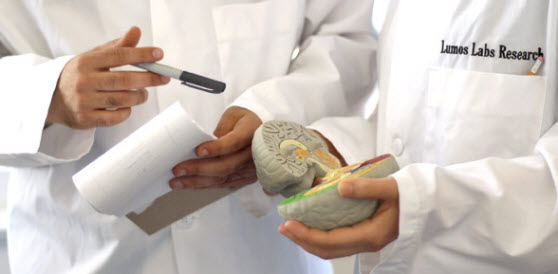Lumosity is pushing the frontiers of neuroscience. Today, the brain-training startup revealed findings from its Human Cognition Project — an initiative that gives researchers access to its data to conduct experimental research.
[aditude-amp id="flyingcarpet" targeting='{"env":"staging","page_type":"article","post_id":762284,"post_type":"story","post_chan":"none","tags":null,"ai":false,"category":"none","all_categories":"big-data,business,","session":"D"}']Lumosity creates brain-training exercises designed to give your brain a workout. It turns strategies developed from academic research on cognition and neuroscience into games that can improve your ability to pay attention, remember information, and perform neurocognitive tasks — all of which are important to succeed in school, career, and life.
Since it launched in 2007, Lumosity has amassed the world’s largest and continuously growing dataset of human cognitive performance, including more than 40 million people who have been tracked for up to six years. It established the Human Cognition Project to expand the reach and impact of this data. The HCP is a global collaboration between researchers, neuroscientists, clinicians, teachers, and academics who mine this data to find insights. Over 1,500 scientists from around the world are using it to uncover insights about our how are brains work and various factors that influence cognitive function.
AI Weekly
The must-read newsletter for AI and Big Data industry written by Khari Johnson, Kyle Wiggers, and Seth Colaner.
Included with VentureBeat Insider and VentureBeat VIP memberships.
Neuroscience research is traditionally conducted through experiments with small, controlled groups of people. This approach can be limiting in terms of questions asked and demographics of the participants, and this is an expensive, time-consuming process. Before people began putting their brain data on the Internet, there was no way to efficiently access a large, diverse sample set. However, that is no longer the case. As of January, Lumosity was adding 100,000 new users every day, and its mobile app has been downloaded almost 50,000 times a day. Seventeen million Americans access the site each month and its been growing 25 percent every quarter since it launched.
The two studies shared today were done in collaboration with Duke University. They examined how lifestyle correlates with cognitive performance and the impact of age on learning rate. Professor of psychiatry Murali Doraiswamy at Duke University Medical Center coauthored the study and said that new technologies and platforms like Lumosity’s have the potential to “transform” neuroscience research.
The study mined Lumosity’s dataset for patterns in the effects of sleep and alcohol on three cognitive abilities — speed, memory, and flexibility. The study found that cognitive performance was most efficient, on average, for users reporting seven hours of sleep each night. The study also found that low to moderate alcohol intake (one or two drinks per day) was associated with better performance in all three tasks, with brain performance scores decreasing steadily with every additional drink.
The second study looked at how learning abilities change over the course of our lives. It looked at two different types of intelligence. Fluid intelligence, which covers learning, problem solving, the ability to adapt to new challenges, and spatial memory tasks; and crystallized knowledge, which draws on accumulated knowledge and skills from life experience, like verbal fluency and basic arithmetic. The results showed that the amount of improvement decreased as age increased, although more so with fluid intelligence than crystallized.
“This finding supports the notion that, although raw cognitive performance peaks in young adulthood, the lifelong accumulation of knowledge compensates such that older adults can still perform at a high level,” Lumosity said in a statement. So your brain won’t necessarily turn to oatmeal as you age. Unless you watch Keeping Up with the Kardashians (note — that wasn’t in the study, just my own personal input)
These findings are just the tip of the iceberg. This is a new frontier of scientific research, one that applies crowdsourced data, crowdsourced expertise, and “big data” to push science forward. The possibilities of what can be done with data like this, are, well mind-blowing.
[aditude-amp id="medium1" targeting='{"env":"staging","page_type":"article","post_id":762284,"post_type":"story","post_chan":"none","tags":null,"ai":false,"category":"none","all_categories":"big-data,business,","session":"D"}']
Lumosity will use this information to develop new games. It currently has more than 40 games that seek to help each person “unlock their full potential.” It has raised over $70 million in funding from Discovery Communications, Menlo Ventures, FirstMark Capital, Harrison Metal, and Norwest Venture Partners. It has paying subscribers in 180 countries and is based in San Francisco.
Photo Credit: Lumosity
VentureBeat's mission is to be a digital town square for technical decision-makers to gain knowledge about transformative enterprise technology and transact. Learn More

